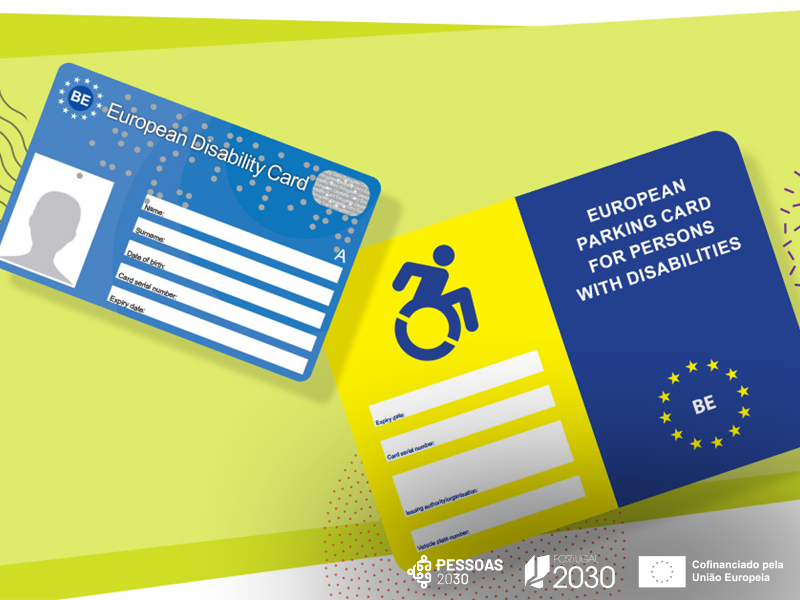Comissão propõe Cartão Europeu de Deficiência válido em todos os Estados-Membros
14/09/2023

A Comissão Europeia propôs a criação de um Cartão Europeu de Deficiência, bem como o reforço do actual Cartão Europeu de Estacionamento para pessoas com deficiência. Ambos os cartões serão reconhecidos em toda a União Europeia (UE) e facilitarão as viagens intracomunitárias das pessoas com deficiência.
Quando o estatuto de deficiência não é reconhecido no estrangeiro, não é possível aceder a condições especiais e a tratamento preferencial, tais como acesso gratuito e/ou prioritário, taxas reduzidas ou assistência pessoal, durante as visitas a outros Estados-Membros.
Para resolver esta questão, a Comissão propôs a criação de um Cartão Europeu de Deficiência normalizado que servirá como prova reconhecida de deficiência em toda a UE. O cartão garante igualdade de acesso a condições especiais e tratamento preferencial em serviços públicos e privados, como transportes, eventos culturais, museus, centros de lazer e desporto ou parques de diversões. O cartão será emitido pelas autoridades nacionais competentes e complementará os cartões ou certificados nacionais já existentes.
A proposta da Comissão que introduz o Cartão Europeu de Deficiência também inclui a melhoria do atual Cartão Europeu de Estacionamento para pessoas com deficiência. Este terá um formato comum a toda a UE, vinculativo, e substituirá os cartões de estacionamento nacionais para pessoas com deficiência.
Ambos os cartões facilitarão o direito das pessoas com deficiência à livre circulação, garantindo condições especiais e direitos de estacionamento quando visitarem outro Estado-Membro.
A proposta de diretiva que estabelece o Cartão Europeu de Deficiência e o Cartão Europeu de Estacionamento, que será agora discutida pelo Parlamento Europeu e pelo Conselho, foi anunciada na Estratégia da UE para os direitos das pessoas com deficiência 2021-2030. Contribui para a aplicação pela UE da Convenção das Nações Unidas sobre os direitos das pessoas com deficiência, da qual a UE e todos os seus Estados-Membros são partes (UNCRPD). A proposta também está alinhada com os princípios da igualdade de oportunidades e da inclusão das pessoas com deficiência do Pilar Europeu dos Direitos Sociais.
Em Portugal, o PESSOAS 2030 vai dar o seu contributo na área da inclusão social de Pessoas Com Deficiência e Incapacidade (PCDI), através do investimento em áreas como o Modelo de Apoio à Vida Independente (MAVI), um projeto piloto destinado a criar condições para que as PCDI possam ter uma vida com autonomia, contribuindo para a sua autodeterminação. Vai também investir na qualificação e em mais e melhor emprego para PCDI, bem como na qualificação e especialização da intervenção técnica e metodológica destinada a este grupo, entre outros apoios.

